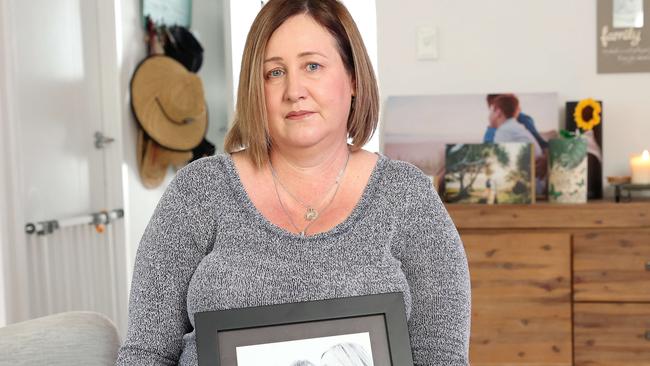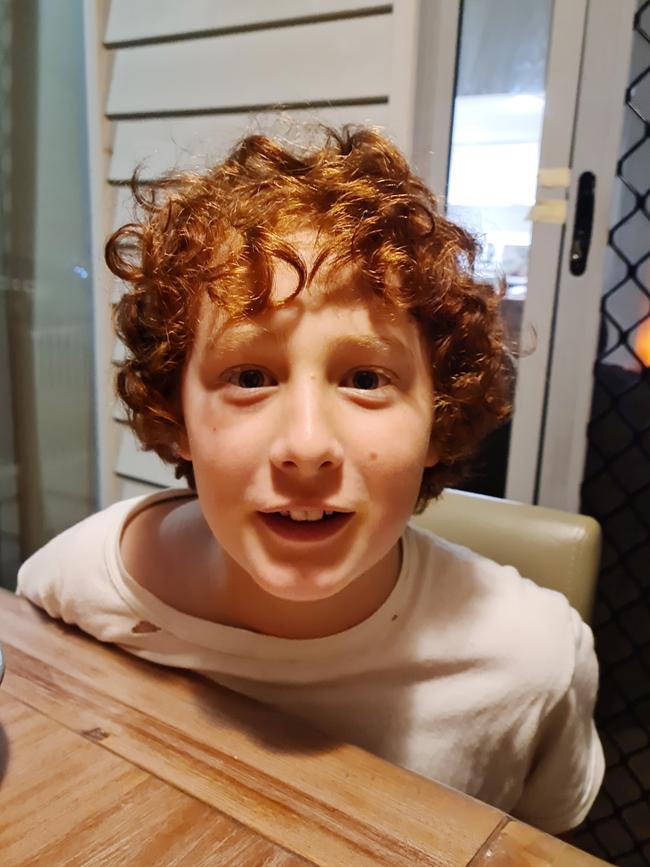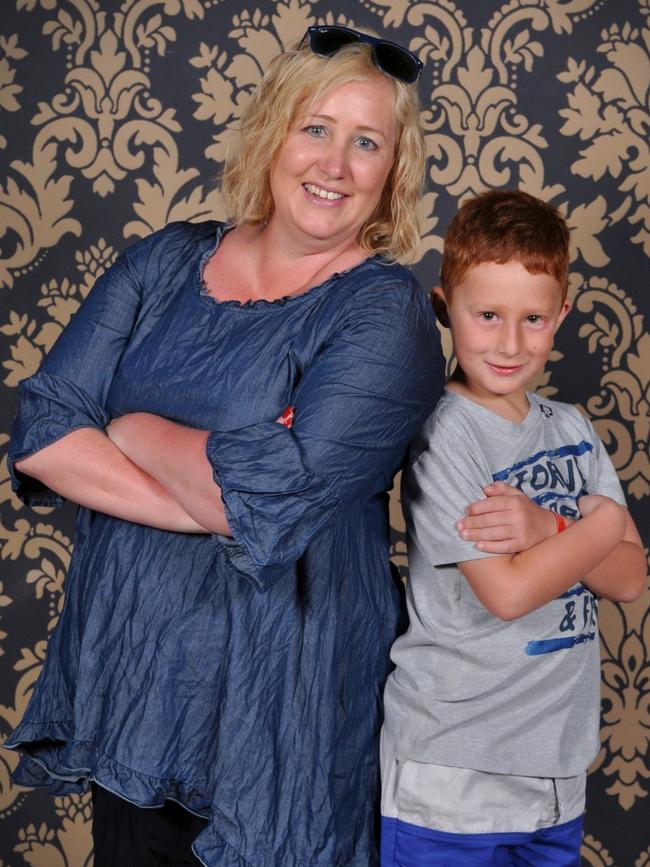Mia Bannister: ‘I am determined to ensure Ollie’s story brings light to an issue that is so often overlooked’
A relentless diet of TikTok fitness videos turned Ollie Hughes from a cheerful kid to a tormented teen. Here his mum tells how the toxic trend “stripped him of joy and self-worth” until he lost the will to live.

Education
Don't miss out on the headlines from Education. Followed categories will be added to My News.
Mia Bannister’s son Ollie, 14, took his own life after developing an eating disorder. Now this grieving mother is launching an eating disorder awareness charity in Ollie’s name. Here, she describes in her own words how it happened, and what she’s doing to help make sure it stops.
When I think of my son Ollie, I remember his intelligence, humour, and caring nature.
But I also remember how a young, vibrant boy with so much ahead of him was drawn into the relentless world of social media. In his case, the algorithms seemed to recognise his feelings of low self-worth and bombarded him with content glorifying gym culture — a world that preyed on his vulnerabilities and magnified his insecurities.
Ollie was inundated with an idealised version of masculinity: the “perfect” physique that dominated his screen.
The algorithms, sensing his engagement, fed him an endless stream of gym videos, diet advice, protein powders, and calorie-tracking tips, making it nearly impossible for him to break free from these influences.
What started as a casual interest in fitness quickly spiralled into an all-encompassing obsession. Ollie began asking if he could join a gym, and when I hesitated, thinking he was too young, he turned to my weights at home.


From there, his focus deepened, and he became consumed by tracking micro and macronutrients and eating only his maintenance calories.
Meals became a rigid routine of weighing every single ingredient — even down to the soy sauce on his tuna and rice. Food was no longer nourishment or pleasure; it was reduced to numbers and control.
By late 2023, Ollie’s obsession with controlling his food and body had taken a devastating turn.
He was diagnosed with anorexia nervosa and admitted to the hospital on December 8. His body was malnourished, and both his vital and non-vital organs had started shutting down.
He remained hospitalised until January 2, 2024.
During those weeks, his anguish deepened. When out of hospital for a week on leave, Ollie began punishing himself for eating by self-harming - a heartbreaking reflection of how deeply entrenched his pain had become.
Despite the best efforts of myself and his medical team, the illness had an unrelenting hold on him.
On January 9, 2024, just days after his discharge, Ollie ended his life.
The weight of his battle had become too much, and the algorithms that preyed on his vulnerabilities had stripped him of the joy and self-worth he deserved.
Losing Ollie has been the most devastating experience of my life, but I am determined to ensure his story brings light to an issue that is so often overlooked. In his memory, I am establishing a charity called Ollie’s Echo: Pathways to Prevention which will launch in March 2025.
This organisation will focus on raising awareness of eating disorders in boys, educating parents and teachers, and tackling the harmful influence of social media.
Julie’s story: ‘Parents aren’t aware of this’
It was shortly after Julie’s 14-year-old son started following professional male bodybuilders on TikTok that he pushed for a commercial gym membership.
“He wanted to do all the protein powders and really specific types that are target marketed,” Julie, who did not want to reveal a surname to protect her son’s privacy, said.
“He was obsessed with food prep, with zero per cent body fat, he started to follow a lot of males on TikTok, many 30 plus age group professional body builders going through the shedding phase, that’s where he was going to as a source of truth,” Julie says.
At the same time, other students at his all-boys school in Queensland were becoming “obsessed with the gym” and living up to a “macho” and “muscly” body image standard.
Julie’s son started restricted eating in March this year, only wanting to eat promoted chicken and rice meals – along with taking protein powder.
By June, he returned from a school trip devastatingly underweight having lost several more kilograms in a few weeks.
Julie’s son, who is now 15, was diagnosed with an eating disorder and “two times he almost went to hospital”.
She is deeply concerned about a growing gym culture in Australia that is targeting schoolboys on social media, telling boys they should be macho, muscly and strong, and warned parents to step in early if they see worrying signs.
Julie wants social media entities, food giants and supplement companies held far more accountable for targeting boys in their marketing.
“These companies have a lack of morals to target kids with their products … I feel there should be more work done by the government to restrict this marketing,” she says.
While Julie is relieved medical practitioners are now helping her son shift to a healthier eating space she still constantly worries about his wellbeing.
“I don’t think parents are aware of this being a growing concern, my GP said he has been inundated with boys coming through the door in the last six months,” Julie says.




